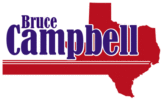MMW = (NR + HE) x T
The formula above is how economies work. Mans Material Welfare = ( Natural Resources + Human Energy) x Tools
“Mans” is short for Mankind or Humankind if that makes you feel better. Our material welfare is all the stuff we have, our food, clothes, furniture, autos, buildings, pencils, paper, etc. You get the idea. Where does all that stuff come from? It comes from natural resources. Food is grown in the ground. Clothes are made from wool, cotton, petroleum. Furniture comes from wood from trees or metal which was mined from the ground. Everything comes from natural resources that have been transformed into something else using human energy. People have to grow crops, raise animals, drill for oil, build factories to make the stuff we want and need. That effort is then multiplied by tools. A farmer can produce more with a tractor than he can just by hand. A builder with a nail gun is more productive than someone with a hammer and nails only. Tools make us more productive.
This is all true of all economic systems. So what is the difference between Free Enterprise and Socialism? In Free Enterprise the tools are owned by the people and in Socialism, the tools are owned or controlled by the government. When the people own the tools of production two things happen. They produce more and they last longer because people stand to lose if they do not take care of their own stuff. People take care of their own stuff better than they do of stuff that is not theirs.
When people own the tools, they create better tools because than stand to profit from their invention. People in a competitive society buy the best tools at the best price. When competition is removed by monopoly or government control, there is no incentive to make better tools at a better price.
In Socialism, the quality goes down and the price goes up, so inevitably the government has to set price controls and limit access. Former British Prime Minister Winston Churchill said that Socialism is a philosophy of failure, the creed of ignorance, and the gospel of envy, its inherent virtue is the equal sharing of misery.
Free Enterprise is the correct term for Capitalism because it is more accurate. Capitalism is the word communists used to describe Free Enterprise. I urge you to go back to using the term Free Enterprise.
Milton Friedman on the “Power of the Market” from his series Free to Choose.
The Ten Pillars of Economic Wisdom
1. Nothing in our material world can come from nowhere, nor can it be free; everything in our economic life has a source, a destination, and a cost that must be paid – by someone.
2. Government is never a source of goods. Everything produced is produced by the people, and everything that the government gives to the people, it must first take from the people.
3. The only valuable money that government has to spend is that money taxed or borrowed from people’s earnings. When the government decides to spend more than it has thus received, that extra unearned money is created out of thin air, through the banks and/or the printing presses, and when spent, takes on value only by reducing the value of all other money, savings, and insurance.
4. In our modern exchange economy, all payroll and employment come from customers, and the only worthwhile job security is customer security. If there are no customers, there can be no payroll and no jobs.
5. Customer security can be achieved by the worker only when he/she cooperates with management in doing the things that win and hold customers. Job security, therefore, is a partnership problem that can only be solved in a spirit of understanding and cooperation.
6. Because wages are the principal cost of everything, widespread wage increases without corresponding increases in productivity, simply increase everyone’s cost of living.
7. The greatest good for the greatest number means, in its material sense, the most goods for the greatest number, which in turn means the greatest productivity per worker.
8. All productivity is based on three factors: (a) natural resources, whose form, place, and condition are changed by the expenditure of (b) human energy (both muscular and mental), with the aid of (c) tools.
9. Tools are the only one of these three factors that man can increase without limit, and tools come into being in a free society only when there is a reward for that portion of their earnings that people must temporarily channel into new tools of production as opposed to purchases that produce immediate comfort and pleasure. Proper payment for the use of tools is essential for their creation.
10. The productivity of the tools-that is, the efficiency of the human energy applied in connection with their use – has always been highest in a competitive society in which the economic decisions are freely made by millions of progressive-seeking individuals, rather than in a state-planned society in which those decisions are made by a handful of all-powerful people, regardless of how benevolent, sincere, and intelligent those people may be.
1964
Hall of Free Enterprise
World’s Fair, New York City
American Economics Foundation
